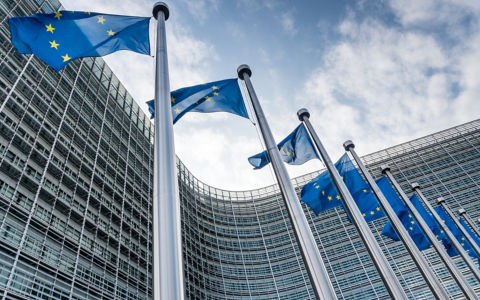- Geopolitical Strategist
Skip to main content
- Funds
- Insights
- Capabilities
- About Us
- My Account
United States, Institutional
Changechevron_rightThank you for your registration
You will shortly receive an email with your unique link to our preference center.
The views expressed are those of the author at the time of writing. Other teams may hold different views and make different investment decisions. The value of your investment may become worth more or less than at the time of original investment. While any third-party data used is considered reliable, its accuracy is not guaranteed. For professional, institutional, or accredited investors only.
The first Trump administration isn’t a perfect analogy for assessing what kind of US foreign policy we should expect over the next four years. Unlike the first time around, we now have the largest war in Europe in decades, the biggest conflict in the Middle East in decades, increasing military tensions in the Taiwan Strait and South China Sea, as well as a rapidly fracturing global order that pits China/Russia/Iran/North Korea against the US/NATO/Japan/South Korea/Australia blocs. In addition, we are seeing the increasingly negative national security implications of climate change. These shifts in the geopolitical backdrop are structural, long term, and will likely continue regardless of this election result.
US national security policies will matter to this backdrop, and I expect the following in a second Trump administration:
All of this remains supportive of existing long-term national security investment themes, including legacy defense, defense innovation, and in particular, climate adaptation given that there will likely be less momentum toward decarbonization at the federal level over the next four years; this backdrop will also likely accelerate disruption/differentiation across regional, country, industry, company, and asset class levels — again, an ongoing positive for active management.
Expert

The soft underbelly of US foreign policy
Continue readingOil: The real influencer in the Venezuela intervention
Continue readingGeopolitics in 2026: Risks and opportunities we’re watching
Continue readingBy
What markets are missing on critical minerals
Continue readingBy
Five ways to find opportunity in a new world (dis)order
Continue readingBy
Brave New World: “US vs them” world order emerges
Continue readingBy
AI and national security: What markets are missing
Continue readingBy
URL References
Related Insights
Get our latest market insights straight to your inbox.
Thank you for your registration
You will shortly receive an email with your unique link to our preference center

The soft underbelly of US foreign policy
Our experts discuss the US-EU financial dynamics amid Greenland tensions and analyze US foreign policy's vulnerabilities.

Oil: The real influencer in the Venezuela intervention
Multi-asset Strategist Nanette Abuhoff Jacobson details the role of oil in the recent events in Venezuela and shares the investment implications.

Geopolitics in 2026: Risks and opportunities we’re watching
Geopolitical Strategist Thomas Mucha shares his outlook, highlighting conflicts to watch, the importance of national security, and investment opportunities.
By
What markets are missing on critical minerals
Geopolitical Strategist Thomas Mucha highlights the importance of critical minerals in US-China relations, details the impact on global markets, and identifies the investment implications.
By

Five ways to find opportunity in a new world (dis)order
Geopolitical Strategist Thomas Mucha analyzes the investment implications of five global themes that speak to the need for strategic adaptation in a turbulent world.
By

Brave New World: “US vs them” world order emerges
Geopolitical Strategist Thomas Mucha profiles the shifts signaling increased global policy friction and national security related opportunities for investors.
By

AI and national security: What markets are missing
Geopolitical Strategist Thomas Mucha analyzes the role of AI in shifting national security dynamics and its influence on future investment strategies.
By

Fiscal versus tariffs: what wins out for Europe?
Just as investors were starting to explore the potential for growth in Europe, Trump’s tariffs landed. To what extent is the case for Europe still intact?

The US equity rotation: Where have all the good vibes gone?
After riding into 2025 on a wave of post-election euphoria, the US stock market has struggled to find its footing so far this year. Global Investment and Multi-Asset Strategist Nanette Abuhoff Jacobson looks at what’s changed in the markets and what it might mean for investors.

Geopolitics in 2025: Risks, opportunities, and deepening uncertainties
Geopolitical Strategist Thomas Mucha outlines his structural, policy, and geopolitical outlook for the year.
By

Emerging markets under Trump 2.0: expect the unexpected
Portfolio Manager Dáire Dunne and Investment Director Irmak Surenkok discuss what Trump 2.0 entails for emerging markets investors and what useful lessons they can learn from his first term.
URL References
Related Insights
© Copyright 2026 Wellington Management Company LLP. All rights reserved. WELLINGTON MANAGEMENT ® is a registered service mark of Wellington Group Holdings LLP. For institutional or professional investors only.
Enjoying this content?
Get similar insights delivered straight to your inbox. Simply choose what you’re interested in and we’ll bring you our best research and market perspectives.
Thank you for joining our email preference center.
You’ll soon receive an email with a link to access and update your preferences.